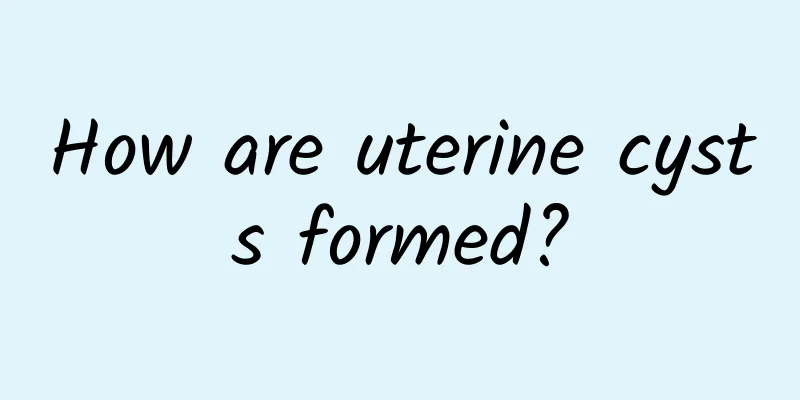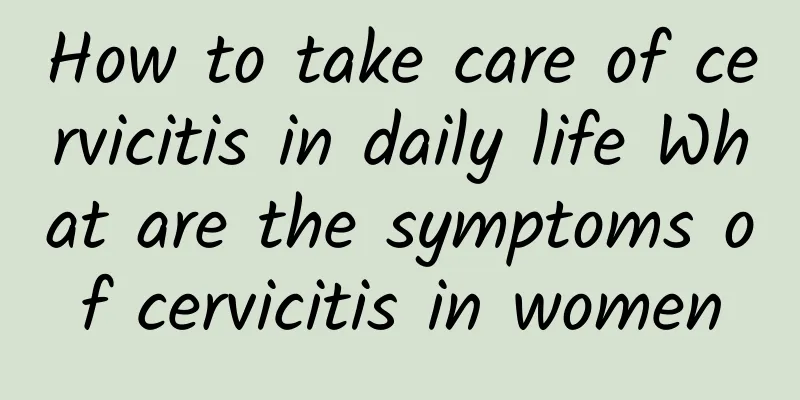How are uterine cysts formed?

|
The main cause of uterine cyst formation is inflammation of the cervix. 1. The formation mechanism of uterine cysts Uterine cysts, medically known as cervical cysts, are mainly caused by cervical inflammation. During the multiple damage and repair processes of the cervix, squamous epithelial cells cover the glands, causing the gland ducts to be blocked, thus forming cysts. This type of cyst usually does not cause obvious symptoms, so many women may only discover it during routine gynecological examinations. 2. Common locations of cysts In gynecology, the main locations of cysts include the cervix and ovaries. Cervical cysts are more common in the external cervical os and endocervical canal, while ovarian cysts may appear in different parts of the ovaries. Although the formation mechanisms of the two are different, they are both closely related to the inflammation and repair process of the female reproductive system. 3. Whether treatment is needed Whether a uterine cyst needs treatment depends mainly on the size and number of the cysts and whether they cause symptoms. Generally speaking, cervical cysts are benign and do not cause serious health effects, and usually do not require special treatment. However, if the cyst is large or causes discomfort, such as pain, bleeding, etc., you still need to go to the hospital for examination and treatment. 4. Daily care and prevention In order to prevent the formation of uterine cysts, women should pay attention to the following points in their daily lives: Maintain good personal hygiene habits, change underwear regularly and keep it dry. Avoid unnecessary gynecological surgeries and operations to reduce the chance of cervical damage. Conduct regular gynecological examinations to detect and treat cervical inflammation in a timely manner. Pay attention to sexual hygiene to avoid infection. 5. Adjustment of lifestyle A healthy lifestyle also plays a positive role in preventing uterine cysts. You should maintain a balanced diet, exercise moderately, enhance immunity, and reduce the chance of infection. Quitting smoking and limiting alcohol consumption, avoiding staying up late, and maintaining a happy mood are all helpful in maintaining the health of the female reproductive system. 6. Doctor’s advice If a uterine cyst has been found, it is recommended to have regular checkups to observe changes in the cyst. The doctor will give personalized advice and treatment plans based on the specific situation. For cysts that are asymptomatic and do not change significantly, regular follow-up is usually sufficient. By understanding the causes and prevention methods of uterine cysts, women can better protect their reproductive health and avoid unnecessary worries and treatments. Maintaining good living habits and regular check-ups are the key to maintaining health. |
<<: Will cervical erosion of degree 2 cause bleeding during sex?
>>: 22 days after miscarriage, a little pain in the lower abdomen
Recommend
Does ovarian cyst have a serious impact on pregnancy?
What is the impact of ovarian cysts on pregnancy?...
Is it possible for a seven centimeter ovarian cyst to disappear?
An ovarian cyst of seven centimeters generally do...
Traditional Chinese medicine health care for patients with uterine fibroids
Uterine fibroids are benign tumors that occur in ...
Analysis of the advantages of micro-tube visual painless abortion surgery
Nowadays, many women who have unplanned pregnanci...
The symptoms of cervical erosion are mainly divided into three degrees
Cervical erosion is the most common type of cervi...
What should be paid attention to after uterine fibroid surgery? What are the nursing methods after uterine fibroid surgery?
Uterine fibroids are a disease that seriously end...
Heart rate sensor watch can accurately measure maximum oxygen uptake
Running may seem ordinary, but in fact, it has al...
Why do early symptoms of ectopic pregnancy become more severe?
Experts say that many women are worried about hav...
What precautions should be taken before uterine fibroid surgery?
What precautions should be taken before uterine f...
What are the most common symptoms of irregular menstruation?
Irregular menstruation is becoming more and more ...
If you don’t want to gain weight, walk 7116 steps every day!
Most obese people want to find a quick way to los...
What should I not eat after having an abortion? What should I eat after having an abortion?
What should I not eat after having an abortion? W...
A brief discussion on the treatment of vaginitis
Vaginitis is a common disease among women. Althou...
Experts briefly introduce several effective methods to relieve dysmenorrhea
Among various gynecological diseases, dysmenorrhe...
What is the cause of recurrent miscarriage? Is blocking antibody the real culprit?
In our lives, we will meet some pregnant women wh...









